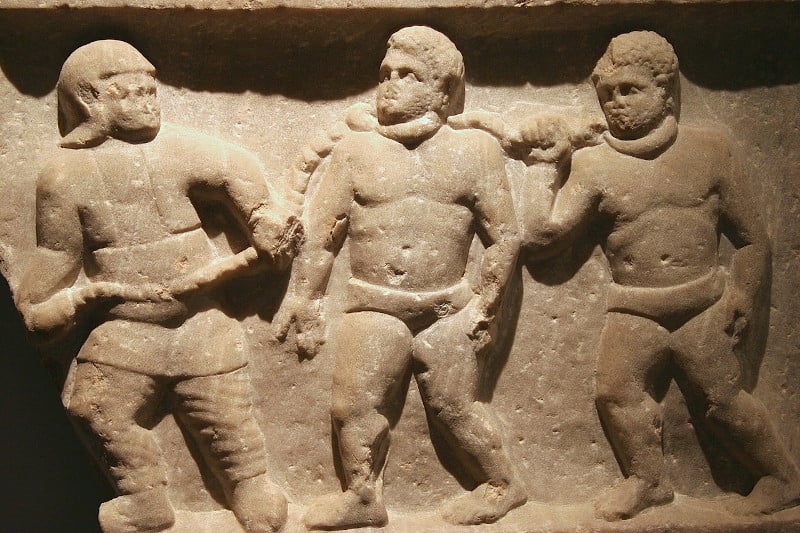
The Ethics of Slavery in Ancient Civilizations
Slavery, a practice that has existed in various forms throughout human history, was always a subject of significant ethical debate. In ancient civilizations, slavery was not only an economic and social institution but also deeply intertwined with the moral and philosophical frameworks of the time. Understanding the ethics of slavery in these early societies requires an examination of the cultural, religious, and philosophical beliefs that shaped attitudes toward slavery, as well as an analysis of the social structures that sustained it. So how did different cultures rationalize or oppose the practice? But more importantly, how did these perspectives evolve over time?
An Era of Different Worldviews: The Concept of Slavery in Ancient Civilizations
For millennia, slavery in ancient civilizations was a complex institution, varying significantly across regions and cultures. The ancient Near East, Egypt, Greece, Rome, and other civilizations all practiced slavery, but their justifications and ethical views differed greatly. In general, slavery was considered a natural part of society, with slaves often viewed as property rather than individuals with rights. This perception was supported by religious, legal, and philosophical frameworks that sought to justify the subjugation of one group of people by another.
- The Zanj Rebellion, Revolt Of African Slaves Against The Abbasid Caliphate
- Exodus: Were the Israelites Slaves in Egypt or Not?
In Mesopotamia, one of the earliest civilizations, slavery was institutionalized and regulated by law. The Code of Hammurabi, dating back to around 1754 BC, includes detailed regulations concerning the treatment of slaves, their rights (albeit quite limited), and the penalties for mistreating them. However, the code also reflects the view that slaves were property, with provisions that allowed for their sale, punishment, and even branding.
Similarly, in ancient Egypt, slavery was deeply embedded in the social and economic fabric of society. Slaves were often prisoners of war, debtors, or individuals sold into slavery by their families. While Egyptian religious beliefs emphasized the importance of ma'at (truth, balance, order, and justice), these principles did not extend to questioning the institution of slavery itself. Instead, the ethical treatment of slaves was often left to the discretion of their owners, with no overarching moral or religious condemnation of the practice.

Ancient Roman collared slave. (Jun / CC BY-SA 2.0)
The Philosophers of Greece Brought Ethics Into Questions
One of the most influential philosophical justifications for slavery came from ancient Greece, particularly from the writings of Aristotle. In his work "Politics," Aristotle argued that some people were "natural slaves," individuals who were inherently suited to being ruled and who could not achieve their full potential without being under the control of a master. According to Aristotle, these natural slaves lacked the rational capacity to govern themselves and therefore benefited from being enslaved by those who were naturally superior. This argument provided a moral and intellectual justification for the practice of slavery, framing it as a mutually beneficial arrangement rather than an inherently unethical institution.
Aristotle's views on slavery were widely accepted in the ancient Greek world, where slavery was an integral part of society. Greek city-states, including Athens, relied heavily on slave labor for their economic prosperity. Slaves in Greece were employed in various capacities, from domestic servants and skilled artisans to agricultural laborers and miners. While some philosophers, such as the Stoics, challenged the idea of natural slavery by emphasizing the equality of all humans at a spiritual level, their views were largely marginalized in a society where slavery was seen as both necessary and natural.
In ancient Rome, the ethical justification for slavery was similarly rooted in notions of natural law and social hierarchy. Roman legal and philosophical thought, influenced by Greek ideas, held that slavery was a condition resulting from war, birth, or legal sanction, and that it was a legitimate way to organize society. The Roman concept of "dominium" (absolute ownership) allowed masters nearly complete control over their slaves, who were considered their property. While Roman law provided some protections for slaves, such as the right to seek redress for extreme mistreatment, the fundamental ethical view remained that slavery was a necessary institution for the functioning of Roman society.
The Emerging Religious Perspectives on Slavery
Religious beliefs also played a crucial role in shaping the ethics of slavery in ancient civilizations. In many cultures, slavery was justified or accepted within the context of religious doctrine. In ancient Mesopotamia, for example, the institution of slavery was seen as divinely sanctioned, with kings and priests often presenting themselves as enforcers of the gods' will. Slavery was integrated into religious practices, with temples owning slaves and using them for various rituals and administrative tasks.




